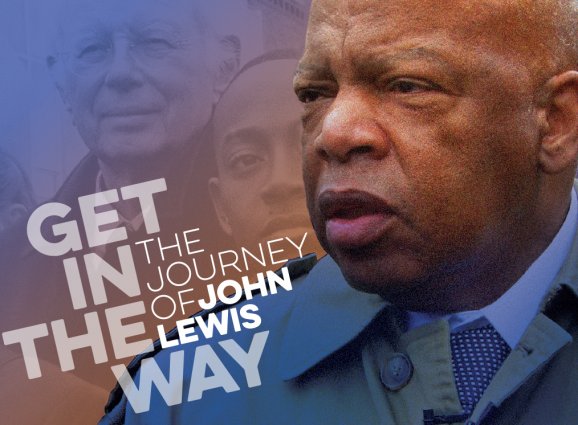Photo: Get In The Way Movie
“Tell the story. Tell it over and over again.”
So exhorts the titular figure at the beginning of “Get in the Way: The Journey of John Lewis,” a new documentary about John Lewis and his participation in the Civil Rights Movement. Filmmaker Kathleen Dowdey’s moving portrayal of this piece of American history was screened this week as part of the Lyndon B. Johnson School of Public Affairs’ 20th annual Barbara Jordan National Forum. As many in the audience noted during the Q&A panel that followed, the lessons we can learn from John Lewis’ life are painfully relevant in today’s political climate.
“[I got into] good trouble, necessary trouble.”
Lewis had six brothers, three sisters and a host of cousins. He was “churched” from a young age, and religion was a significant influence in his formative years–indeed, it has remained so throughout his life. When he went off to college, his mother admonished him to “stay out of trouble.” Lewis reflected on this in the film, stressing the importance of individuals’ willingness to get into trouble in the face of injustice. In fact, Lewis missed his college graduation because he had been arrested in Mississippi for being a Freedom Rider. The film shows the riders mobbed during their trip from Birmingham to Montgomery, and the photographs were a visceral reminder of the kind of brutality white American citizens were willing to live with–even actively inflict–only fifty-some years ago.
“We need inspiration.”
Dowdey heard this thought more than any other from audiences as she screened her film over the last year. She also noted that the tone of the response to the film changed after the November presidential election, as Lewis’ observations took on a more urgent quality. This might be influenced by the fact that Lewis himself is documented at a wider range of ages than is typical for a documentary like this. Dowdey worked on this project for almost 20 years, so the audience sees Lewis not only as the young civil rights activist he was in the sixties and the experienced congressman he is today, but also in his freshman years in Congress and throughout his campaigns for reelection. It inspires both admiration and a kind of deep anguish to realize, as the film progresses, that there has never been a time when Lewis’ work didn’t put him at risk of arrest at best, or physical violence at worst.
“What do we do?”
This has been one of the most oft-asked questions for many politically-engaged citizens since the election, so it isn’t surprising that it came up towards the end of the Q&A. In addition to Dowdey, the panel included Nelson Linder, UT professor and president of the Austin chapter of the NAACP, and Tasha Philpot, scholar of black congressional history. Linder and Philpot addressed this question with calls to action at the local level–attending to local elections and increasing voter turnout. Turnout in Texas, they pointed out, is significantly below the national average, which gives the advantage to Republicans and contributes to the uncontested nature of many local contests. The engagement of an informed populous, they said, is what will preserve progress and drive further change. Indeed, this was the core message of Dowdey’s film, most appropriately titled after Lewis’ own call to action: “We cannot be afraid to get in the way.”
Austin: How You Can Get in the Way:
Help increase voter registration in Texas by becoming a Volunteer Deputy Registrar.
Find a volunteer opportunity that matches your passion and connects you with your community.
Think about running for office–whether you’re a Republican, a Democrat or neither, citizens who are concerned with civil rights and good government are needed in public office now more than ever.
Learn more about the civil rights movement by visiting the LBJ Library and attending future events like this one.
Edited by: Renee Poisson

